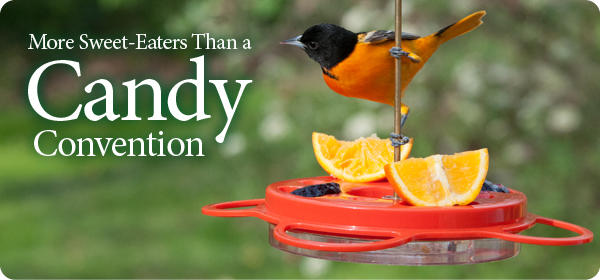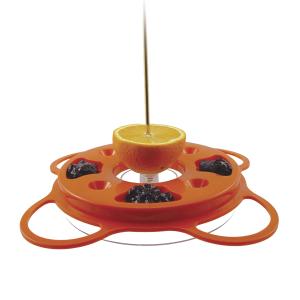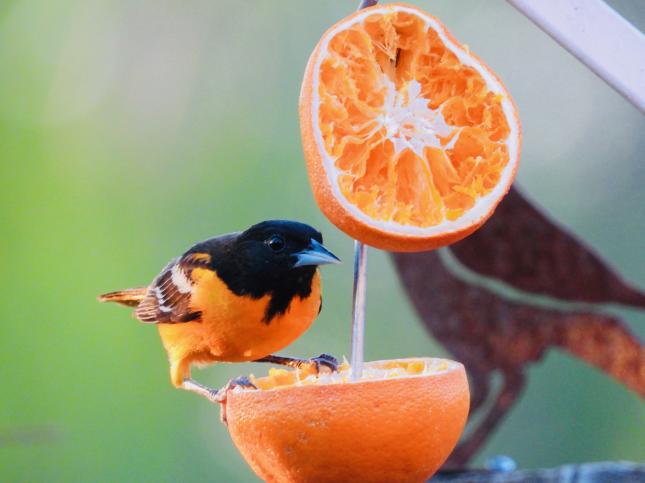
Oh! Things to Know About Orioles
Baltimore Orioles arrive in Ottawa late April/Early May! These incredibly stunning birds are easy to attract by offering their favourite foods in our Wild Birds Unlimited Oriole Feeder. What is so great about our WBU Oriole Feeder is it holds nectar, jelly & oranges - all of their favourite foods!


A stunning male Baltimore Oriole enjoying an orange snack on a beautiful May evening in Kanata (west Ottawa).
Oriole Fun Facts
- When not feeding on nectar, orioles seek out caterpillars, fruits, insects, and spiders.
- The Oriole nest is an engineering masterpiece. They weave a hanging-basket nest with plant fibers, grasses, vine and tree bark and sometimes string or yarn placed out on the small twigs of a branch 6-45 feet in the air. This keeps them safe from most predators.
- The Baltimore Oriole is a common inhabitant of suburban landscapes due to is preference for open settings that are bordered with mature trees.
- Orioles are a member of Icteridae family, meaning that their closest bird relatives include meadowlarks, blackbirds, bobolinks and grackles.
- The oriole gets its name from the Latin aureolus, which means golden.
A Dream of a Weaver
Many of us dream of having an oriole take up residence in our yard or neighborhood. To behold a brilliant-colored male flashing like a burst of fire from branch to branch, while serenading us with its uplifting whistles, it’s a cause for celebration!
Typically woven out of plant fibers, the oriole’s hanging basket nest is truly an engineering masterpiece. It takes up to two weeks to complete the six inch deep nest, with the female investing over 40 hours to weave more than 10,000 stitches and tying together thousands of knots - all skillfully done with her beak alone.
*Breaking News*
Baltimore Orioles - #BringBirdsBack
Overall, the U.S. and Canada have lost 1 in 4 birds in the past 50 years—with populations of migratory birds like the Baltimore Oriole down by 28% since 1970. Find out how you can help #BringBirdsBack here: www.birds.cornell.edu/BringBirdsBack
Be a voice for birds and spread the word.

